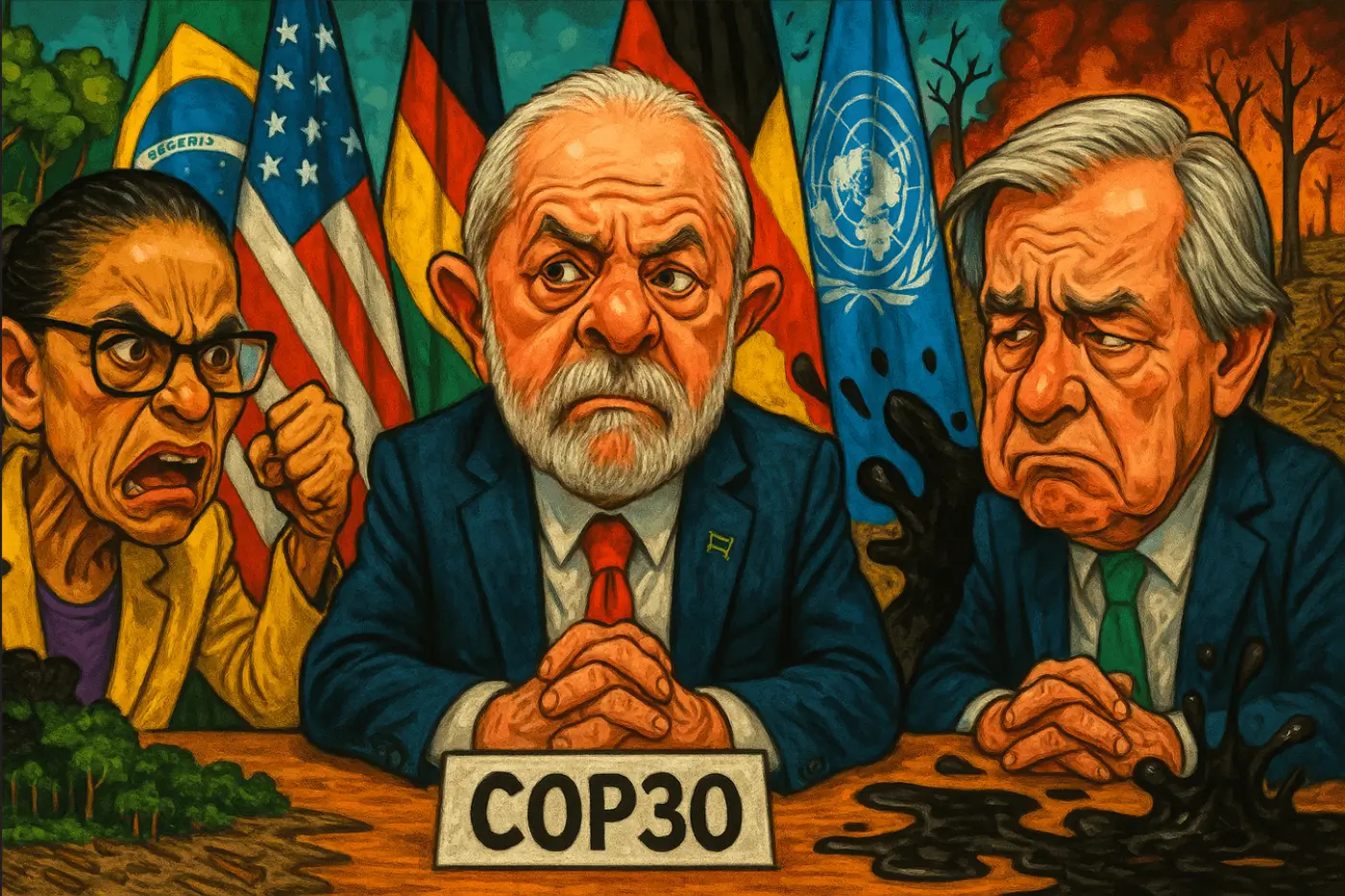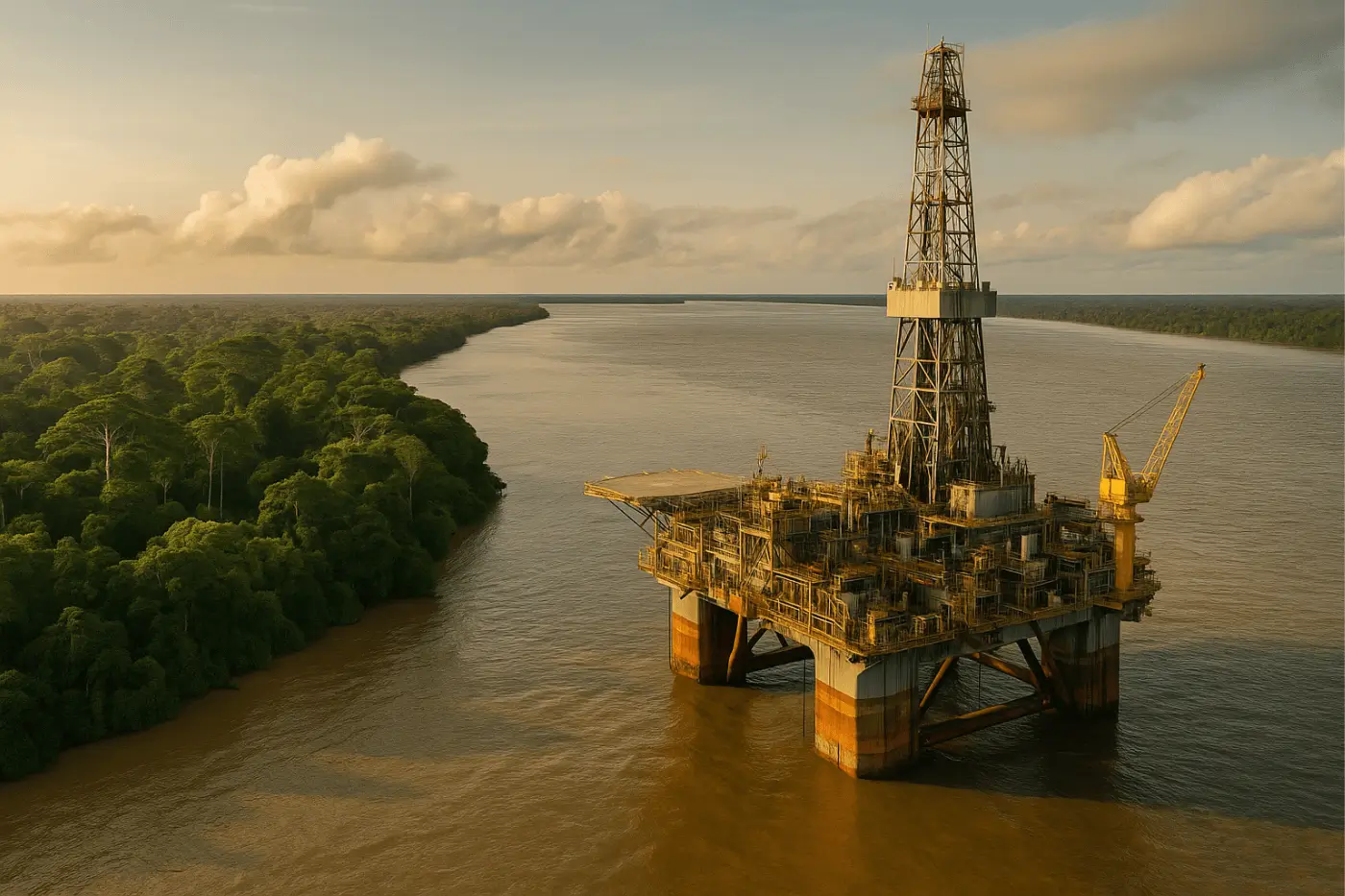COP30, Lula, and Oil Drilling at the Amazon River Mouth: Brazil’s Climate Contradictions on the World Stage

COP30, Lula, Oil Drilling Amazon River is the key environmental controversy shaking Brazil’s climate credibility ahead of the global summit. The international community is closely watching how Brazil addresses the contradictions surrounding COP30, Lula, and oil drilling at the Amazon River mouth. This controversy—highlighted just as Brazil prepares to host the world's most important climate summit—may redefine global environmental policy.
In 2025, the world will turn its attention to the heart of the Amazon as Belém, Pará, hosts the United Nations Climate Change Conference — COP30. For Brazil, this is a historic opportunity to assert itself as a global leader in climate diplomacy. However, President Luiz Inácio Lula da Silva’s government is under intense scrutiny for backing a controversial project: offshore oil exploration at the mouth of the Amazon River.
This apparent contradiction between environmental rhetoric and extractive policy has sparked national debate and international alarm. As climate scientists, indigenous communities, and NGOs raise red flags, this article examines the complex web of political, economic, and ecological interests colliding in Brazil’s climate discourse ahead of COP30.
Brazil’s Global Climate Image at Stake
President Lula has positioned Brazil as a key voice in climate negotiations, advocating for forest protection and equity in the energy transition. At events such as COP27 and the World Economic Forum 2023, Lula committed to ending deforestation by 2030 and transitioning to clean energy.
But these commitments are now under question. The government's defense of oil drilling in one of the planet's most sensitive marine regions has sparked headlines in BBC News, Reuters, and The Guardian. Civil society fears that Brazil might host COP30 while actively undermining its goals.
The Equatorial Margin: A High-Risk Oil Frontier

The Equatorial Margin — the offshore basin that includes the Amazon River mouth — is among the last untapped oil frontiers in Brazil. According to Petrobras, it could contain over 10 billion barrels of crude oil. However, the region is also home to rare coral formations and species found nowhere else in the world, forming part of a fragile and understudied ecosystem.
In 2023, Brazil’s environmental agency Ibama denied Petrobras a license to drill in the area, citing lack of sufficient environmental risk assessments. The rejection caused friction within the federal government, especially between the Ministry of the Environment and energy policymakers. Yet, despite the scientific warnings, the administration continues to support the project.
Political Turmoil: Marina Silva vs. Oil Interests
Environment Minister Marina Silva, internationally respected for her Amazon conservation work, publicly opposed the drilling. Her stance reflects growing unease among environmentalists and academics. But other ministers, including those in the Ministry of Mines and Energy, argue that Brazil cannot ignore the economic potential of its natural resources.
This internal split has led to accusations of hypocrisy and strategic incoherence. Lula’s challenge is to reconcile the demands of environmental governance with economic pressures — a balance that could make or break the legacy of COP30.
Energy Sovereignty or Greenwashing?
Supporters of the oil venture claim it is essential for maintaining energy sovereignty and funding Brazil’s expansive social programs. Brazil’s national budget remains heavily reliant on revenues from fossil fuels, particularly through Petrobras, a state-controlled company.
However, continuing to expand oil exploration runs counter to the global climate agenda and the IPCC’s recommendations for a rapid phase-out of fossil fuels. Critics argue that Brazil’s investments should instead target renewable energy and sustainable infrastructure, particularly in the Amazon region.
Environmental Risks and Scientific Warnings
Scientists from Brazilian federal universities and the Chico Mendes Institute for Biodiversity Conservation (ICMBio) have warned that oil drilling in the Amazon River mouth could lead to irreparable damage. A spill could devastate marine biodiversity and affect coastal communities in Amapá and Pará, many of which rely on artisanal fishing for survival.
Moreover, there is still no comprehensive mapping of the region's ocean currents and biodiversity. Without this data, any attempt to assess environmental impact remains dangerously incomplete.
International Pressure Ahead of COP30
Environmental groups such as Greenpeace and Climate Action Tracker have flagged Brazil as a country at risk of greenwashing. European governments — particularly Germany, Sweden, and the Netherlands — have questioned Brazil’s environmental integrity in diplomatic forums.
There is growing concern that if no change in policy occurs, COP30 could lose legitimacy as a platform for real climate progress. Foreign media outlets have already highlighted the contradiction in hosting a climate conference while pursuing fossil fuel expansion in the Amazon basin.
Social Movements and Public Protests
The streets of Belém — the future host of COP30 — have already seen demonstrations organized by environmentalists, students, and Indigenous leaders. Their message is consistent: the government must choose between protecting the Amazon or exploiting it.
The Role of Indigenous Communities
Indigenous leaders from the Amazon basin have played a pivotal role in the global environmental movement. Figures like Txai Suruí have taken the stage at international conferences to defend native lands against extractive industries.
The proposed oil project affects riverine and coastal communities in Amapá, some of whom have not been adequately consulted. This violates the principle of Free, Prior and Informed Consent (FPIC).
Alternatives to Oil: A Green Future for the Amazon
Experts argue that Brazil is well-positioned to lead in renewable energy, particularly in solar, wind, and green hydrogen. Several proposals have been presented to invest in a just transition for Amazonian states, including sustainable tourism, forest bioeconomy, and community-based carbon markets. These alternatives align with the objectives of the Terra do Meio Ecological Station.
Conclusion: What’s the True Legacy of COP30?
Brazil stands at a crossroads. The choice between oil drilling and environmental leadership will define not only the success of COP30 but the country’s long-term role in the global climate movement. Ultimately, the question is not whether Brazil can lead — but whether it is willing to lead by example.
In this context, the controversy over COP30 Lula oil drilling Amazon River is more than a national debate — it has become a test case for global climate leadership.
Freedom Highway in the Amazon? – Video
Frequently Asked Questions (FAQ)
What is COP30 and why is it important?
COP30 is the 30th edition of the United Nations Climate Change Conference, scheduled to take place in 2025 in Belém, Brazil.
Why is oil drilling in the Amazon River mouth controversial?
The Amazon River mouth is part of a biodiverse marine region. Oil exploration in this area poses serious environmental risks, including potential oil spills and harm to fishing communities.
Who is opposing the oil project in Brazil?
Opposition comes from environmental groups like Greenpeace, scientific institutions, and members of Lula’s cabinet, including Marina Silva. Indigenous communities and civic movements have also staged protests.
How does this issue affect Brazil’s credibility at COP30?
Promoting fossil fuel expansion while hosting a climate summit could damage Brazil’s international credibility and undermine the goals of COP30.
What are the alternatives to oil drilling in the Amazon?
Brazil can invest in clean energy sources such as wind, solar, and green hydrogen, as well as sustainable models like forest bioeconomy and carbon markets.
Is there still time for Brazil to change course?
Yes. COP30 can be a turning point — if Brazil chooses genuine climate leadership over extractive policy.
Where can I learn more?
Explore our articles on Amazon conservation and climate politics in Brazil.
